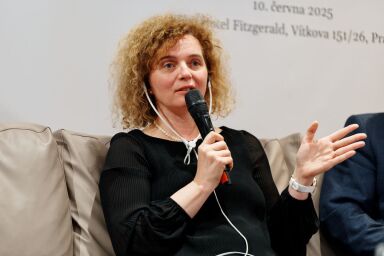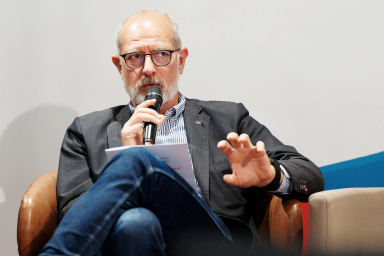It is becoming increasingly clear that one thing prevention should be closely linked to is modern and effective approaches to combating addiction. Alongside vaccination and screening programmes, primary prevention of addictions also plays a key role, especially when it comes to children. Secondary and tertiary prevention plays a similar role in risk reduction through alternatives for smokers, whose diseases impose an extraordinary economic burden (not only) on the health system. The European Ministers of Health confirmed at the 2nd Annual International Panel of the Permanent Conference on Healthcare, that an effective fight against addiction is an important part of prevention policies.
„In a democratic society, everyone has the right to make mistakes, and if a democratic society is social, it helps those who make mistakes. At the same time, we should significantly strengthen prevention. I am very pleased that the Czech Republic has managed to increase the money for prevention programmes, and I would also like us to use the data scientists are giving us and to take a uniform approach to prevention in Europe, for example, as has been done with smoking reduction and harm reduction. This is how we should continue in all areas,“ says Czech Minister of Health Vlastimil Válek.

Czech Minister of Health Vlastimil Válek.
On the other hand, he said, it is illusory that we could create a smoke-free, abstinent and healthy living population through laws and regulations. That is why we need to do everything we can to ensure that everyone has the opportunity to live a healthy life and to persuade people of this. „But it has to be a free decision,“ Válek emphasises.

Slovak Health Minister Vladimír Lengvarský confirms his words and adds at the same time that stress also plays a very important role in this issue. „And critically, I have to say that we, politicians, cause a lot of stress to ordinary people. We will try to prevent that,“ he adds with exaggeration.
All ministries need to be involved
The Estonian Minister of Health and Labour, Peep Peterson, stresses the importance of being deliberate in the regulation of addictive substances. This is illustrated by the experience of efforts to restrict alcohol, where Estonia has in recent years moved to raise taxes and cover these goods in shops. The result, of course, was that people started to go to Latvia for supplies, and some ended up drinking even more – not to mention that the state lost money in taxes.
Therefore, the country now wants to move in the direction of the early detection of addictions before irreversible damage is done. „There are questionnaires about alcohol consumption and other addictions that are handed out to patients. There is also a screening model, which are things we’re thinking about now,“ Peterson said.

Commenting on the issue of addiction, Latvian Minister of Health Daniels Pavļuts, stresses that it is necessary to look at the issue in a comprehensive way, from smoking to hard drugs to gambling. And while some of the now legal substances that cause harm are worthy of debate for greater regulation (but which, as seen in the example of neighbouring Estonia, must be thoughtful and proportionate), for other now illegal substances that are similarly harmful, it is not out of place to talk about possible relaxation of laws and decriminalisation – something that has already started to happen in Latvia with marijuana.

„As for the inventory of existing methods, we should replace those that don’t work very well with support and treatment mechanisms that actually help people. These are, among other things, social and community tools that force us to overcome the separate approach of individual ministries and municipalities, which have different funding and incentives. We are working on this and reorienting our approach and policy,“ says Daniels Pavļuts.
Prevention should start in childhood
Vlastimil Válek also confirms the need for cooperation between all ministries. Regarding the issue of preventing (not only) addiction, he emphasises the importance of starting early. „There is a need for intensive cooperation across ministries. It has to start in schools, when the harm needs to be explained. Instead of „gladiators“, which is what the top athletes are today, we should support youth sports – not those who are gifted and skilled, but especially those with a tendency to obesity, whom nobody wants in professional clubs. It is also necessary to filter children away from harmful substances such as nicotine,“ Válek stresses.

This is confirmed by his Austrian colleague. „In the long term, the most effective measures are those that start in early childhood. Measures for children from socio-economically disadvantaged backgrounds and targeted measures for vulnerable groups are particularly cost-effective,“ said Johannes Rauch, Austria’s Minister for Social Affairs, Health, Care and Consumer Protection.

Michaela Koubová






